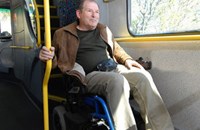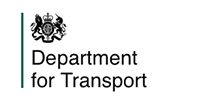
Work aimed at improving accessible toilets on the railways, ensuring better use of Blue Badges and trials in autonomous vehicles are among measures to improve transport for people with disabilities, announced today.
The draft accessibility action plan, published today, is the next step in the government’s commitment to removing barriers for millions of disabled people to be able to travel independently and confidently.
The Department for Transport is now consulting on the plan to seek views and ideas on how to best improve accessibility on roads, rail, water and in the air.
Transport Minister Paul Maynard, who launched the plan in Leeds, said:
"I take the issue of accessibility across all modes of transport very seriously.
"This draft accessibility action plan is the next step in a much needed dialogue with disabled people, carers, transport providers and local authorities to identify new ways to improve travel.
"It sets out the government’s strategy to address gaps in our transport services which serve as a barrier to people with disabilities.
"I secured commitments from the rail industry earlier this year to help make things better for disabled people. It is absolutely vital that all people are able use transport."
From October, a pilot study will explore opportunities to increase the availability of accessible toilets on trains and improve their reliability through better tanking facilities.
The department is also working with the Rail Delivery Group to provide ‘alternative journey options’ – for example, if the only accessible toilet is out of use.
A competition will be launched jointly with the Rail Safety and Standards Board, to find solutions to reducing the cost of accessibility improvements at stations, including the availability of accessible toilets. It will also focus on supporting people with less visible disabilities.
The action plan also commits to reviewing Blue Badge eligibility for those with non-physical disabilities.
Improvements could be made so that the criteria is more consistently applied across the country.
In addition, the Bus Services Act 2017 includes powers to require bus operators to provide audio-visual route and next stop announcements on board their services, of particular benefit to people with impaired vision or hearing.
Keith Richards, Chair of the Disabled Persons Transport Advisory Committee, said:
"DPTAC welcomes the launch of this accessibility action plan consultation. It supports our vision that disabled people must have the same access to transport as everybody else, to be able to go where everyone else goes and to do so easily, confidently and without extra cost.
"A focus on the future and a commitment to clear actions are key drivers for change and improvement in access to transport and the built environment in which it operates – for all disabled people. We will continue to hold the department to account after publication of the plan."
The government is also working in other sectors to improve accessibility.
As part of our ambitious aviation strategy, for example, we are consulting on how to improve the experience of disabled passengers both in airports and on flights.
For autonomous vehicles, the government’s centre for Connected and Autonomous Vehicles (CCAV) is working to secure the safety, socioeconomic, and industrial benefits for the UK – and this includes improving access to mobility for all.
For example, CCAV is joint funding a number of exciting real-world trials of connected and autonomous technologies in cars, shuttles, and pods, which are actively exploring how people with mobility impairment can benefit.
About The UK Department for Transport
The UK Department for Transport works with our agencies and partners to support the transport network that helps the UK’s businesses and gets people and goods travelling around the country. We plan and invest in transport infrastructure to keep the UK on the move.




Comments
There are no comments yet for this item
Join the discussion